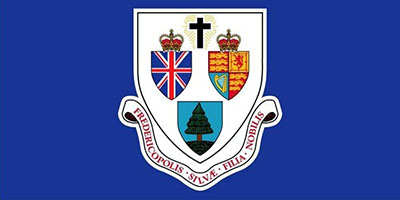New Brunswick
Origin of the Name
New Brunswick was named in 1784 to honour the reigning British monarch, King George III, who was also Duke of Brunswick.
History
The area now known as New Brunswick was originally inhabited by nations of the Algonquian linguistic group. The Mi'kmaq welcomed the French under Pierre de Monts and Samuel de Champlain when they first landed in New Brunswick in 1604. The relationship between the First Nations and the French was good from the start. The Mi'kmaq helped the French settlers, who became known as Acadians, adapt to the land. They also helped French troops launch raids on New England.
The Acadians were the first Europeans to settle in present-day New Brunswick. Until the Treaty of Utrecht in 1713, when France ceded the area to Great Britain, both Nova Scotia and New Brunswick were part of Acadia. However, over the years, France had all but ignored the Acadians, being much more concerned with New France and the increasing value of the fur trade there.
The Treaty of Utrecht created the British colony of Nova Scotia, which at that time included New Brunswick and Prince Edward Island. Nevertheless, Acadia continued for many years to be an area of conflict between the old world powers, and it was decades before the area was fully brought under British rule. After the British victory, many Acadians fled; others were expelled by the authorities in 1755.
In 1762, a trading community was established at the mouth of the St. John River by Massachusetts merchants. Before the peace of 1763, permanent British settlements were started by New Englanders at Chignecto and in the St. John River Valley. Settlers from Yorkshire, England, who came to Chignecto in the early 1770s, helped defeat an attempt from the rebellious colonies in 1776 to take Chignecto and its strategic Fort Cumberland/Beauséjour.
In 1783, thousands of Loyalist refugees from the American Revolution settled in the western part of Nova Scotia, far from the colony's administrative centre in Halifax. In response to Loyalist demands for their own colonial administration, the British government established the new colony of New Brunswick in 1784.
In 1864, New Brunswick was involved in discussions with the colonies of Nova Scotia, Prince Edward Island and Newfoundland to consider a Maritime union when the Province of Canada was issued an invitation to attend the conference in Charlottetown. The result, three years later, was the creation of the Dominion of Canada.
New Brunswick was among the first four provinces to form the Dominion of Canada at Confederation on July 1, 1867. Promises of increased prosperity, a railway linking New Brunswick to central Canada, and a desire to unite with other British colonies to form a strong country in the face of growing American influence, all encouraged New Brunswick to join Confederation.




